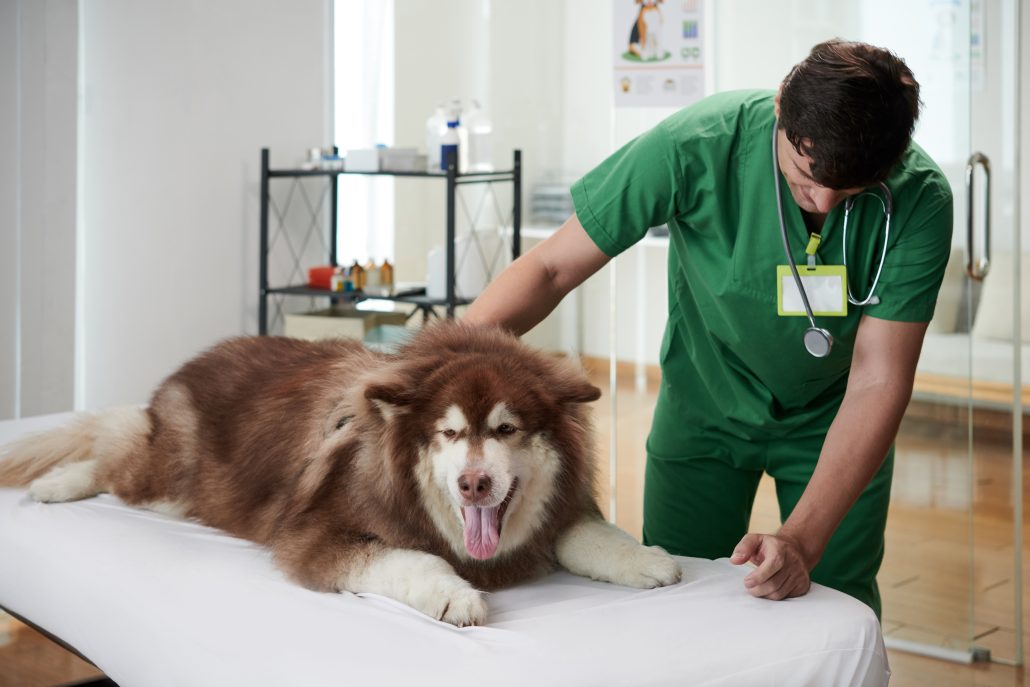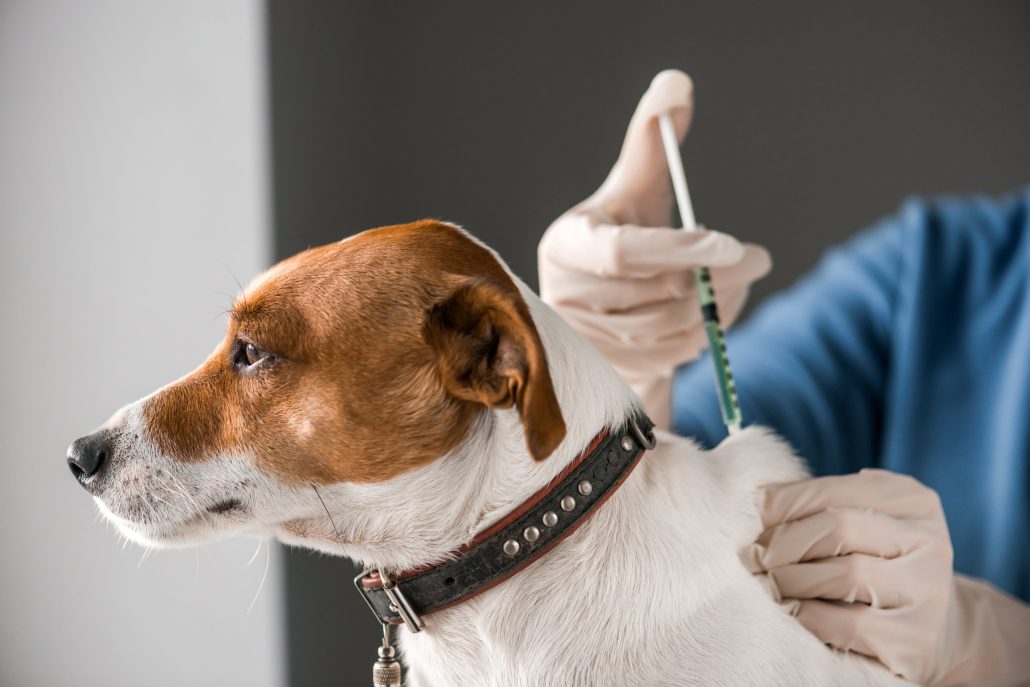
Seeing our pups fall ill can be a distressing experience for any dog owner. Among the host of illnesses and health concerns our dogs can pick up, canine distemper is one of the most serious and potentially fatal diseases. Fortunately, canine distemper is highly preventable with proper vaccination and care.
Understanding the facts surrounding this disease—its symptoms, available treatments, and preventive strategies—is crucial knowledge for every dog owner. In this post, we discuss everything you need to know about anine distemper, equipping you with the information to keep your pup happy and healthy.
What Is Canine Distemper?
Canine distemper is a highly contagious viral disease caused by the paramyxovirus. It affects various systems in dogs, including the respiratory, gastrointestinal (GI), nervous system, and other organs and without treatment can be fatal.
While the virus does not survive long in the environment and most standard disinfectants can effectively destroy it, dogs infected with distemper can shed the virus for several months, even after recovering from the illness. This prolonged shedding period poses a significant risk to other dogs in close proximity.
Puppies and dogs that have not been vaccinated are the most vulnerable to the distemper virus.
How Can Dogs Get Canine Distemper?
Our canine companions can get distemper in several way, including:
Direct Contact: Dogs can become infected through direct contact with an infected animal or contaminated objects. When an infected dog coughs, sneezes, or barks, it releases droplets into the environment, potentially infecting nearby animals and surfaces such as food and water bowls.
Airborne Transmission: Similar to how the common cold spreads among humans, distemper can also spread through the air, making dogs vulnerable in shared spaces like kennels or shelters.
At Birth: Puppies can be infected with distemper from their mothers through the placenta, particularly if the mother is infected during pregnancy.
- Cross Species: It’s not just dogs that can be affected by distemper. Wild animals such as raccoons, foxes, wolves, coyotes, skunks, ferrets, and mink can also contract the disease. This means that an outbreak among local wildlife can increase the risk of dogs contracting distemper, especially if you and your pup go on walks and hikes.

Symptoms Of Canine Distemper
Canine distemper has a lot of symptoms that vary depending on the stage and severity of the disease. Identifying distemper early is particularly important as this allows for quick vet care, which can improve the chances of successful treatment and recovery.
Early Signs:
- Fever: Dogs typically develop a fever approximately 3 to 6 days after being infected with the distemper virus.
- Respiratory Signs: Early signs often include a clear nasal discharge and sometimes a purulent (pus-like) eye discharge.
- General Signs of Illness: Lethargy (lack of energy), loss of appetite, coughing, and vomiting are common early indicators.
- Gastrointestinal Disturbances: Diarrhea may also occur, contributing to the overall debilitation.
- Rare Dermatological Symptoms: In some cases, dogs may develop pustular dermatitis. This is a condition where the skin is inflamed with pus-filled lesions.
- Hyperkeratosis: If a dog survives the initial stages of distemper the skin on their paw pads and nose may harden (also known as hard-pad disease).
Neurological Symptoms:
As the disease progresses, the distemper virus can attack the central nervous system, leading to neurological symptoms that are particularly concerning for pet owners:
- Head Tilting and Circling: Affected dogs may tilt their heads to one side or circle repetitively.
- Paralysis: Partial or complete paralysis of limbs or facial muscles can occur.
- Seizures: Dogs may experience seizures, characterised by repetitive movements, twitching muscles, and sometimes increased salivation and chewing motions.
- Repetitive Eye Movements: Neurological involvement may cause abnormal eye movements.
- Convulsions: Severe cases can lead to convulsions, marked by involuntary muscle contractions and loss of control.
- Inflammation of the brain & spinal cord: Distemper can also lead to inflammation of the brain and spinal cord, further exacerbating neurological symptoms and potentially leading to irreversible damage if not treated as soon as possible.
If you notice any of the above signs, be sure to contact your vet immediately. They will be able to advise you on the next best steps, which may include conducting diagnostic tests to confirm distemper, providing supportive care to manage symptoms, and discussing treatment options tailored to your dog’s condition.
Read More: Staying Calm In A Pet Emergency

Diagnosing & Treating Distemper
Diagnosing canine distemper can be challenging due to the nature of the disease and the limitations of available tests. While there are tests to detect the presence of the distemper virus, these results are not always definitive on their own.
Instead of relying solely on test results, veterinarians will evaluate the entire clinical picture, including a dog’s specific symptoms and health history. This holistic approach is crucial because knowing the dog’s vaccination status and recent exposure to other dogs or wildlife helps in forming a diagnosis.
Treatment & Management:
Currently, there is no cure for canine distemper. Treatment primarily focuses on supportive care and managing symptoms to improve your dog’s comfort and prognosis. This may include:
Supportive Care: Providing fluids to correct dehydration, electrolytes to maintain balance, and IV nutrition for strength.
Medications: Administering seizure medications to control neurological symptoms, fever reducers, and antibiotics to prevent secondary infections.
Isolation: Infected dogs should be isolated from other dogs to prevent the spread of the virus.
How Do We Prevent Canine Distemper?
Vaccinations! Never underestimate the importance of vaccinations for your pups – no matter their age. Not only does is offer protection against a number of diseases, but is the foundation of canine distemper prevention.
It’s typically included in your pet’s core vaccination schedule and will usually start with puppies when receiving a series of initial vaccinations to build their immunity. However, if your adult dog hasn’t been vaccinated, is overdue, or is missing vaccinations, it’s never too late to start or catch up! Your veterinarian can help develop an appropriate vaccination schedule.
Other preventative measures include:
Limit Exposure During Vaccination Series: Until the initial vaccination series is complete for your pups, avoid places where dogs gather. Places like pet shops, parks, puppy classes, doggy daycares, kennels, and groomers are all environments that can increase the risk of exposure to the virus.
Choose Safe Establishments: Opt for facilities and training programs that enforce up-to-date vaccinations, conduct health examinations, maintain good hygiene practices, and isolate sick puppies and dogs.
Isolation When Sick: Keep your dog away from other dogs if they are sick, including those within your own home. This can help prevent the potential spread of infections.

It's Never Too Late To Be Safe!
It is never too late to keep your companion safe from Canine Distemper. As we’ve seen, it is a dangerous disease that is both distressing for you and your pup. By staying vigilant for signs like fever, respiratory issues, and neurological symptoms, you can detect the disease early and improve treatment outcomes.
Vaccination is always the most effective tool in preventing distemper, ensuring your dog builds immunity against this serious virus. Additionally, practising responsible pet care—such as avoiding exposure to infected animals and choosing safe environments— can further reduce the risks.
Ensure your dog is protected with up-to-date vaccinations and schedule a wellness check with us at The House Call Vet. Our team is here to provide expert guidance on vaccinations, health screenings, and preventive care tailored to your pet’s needs. Contact us now to schedule an appointment and keep your dog happy and healthy!

